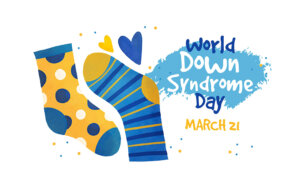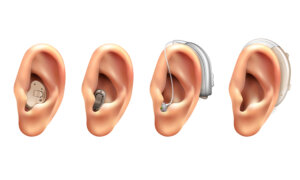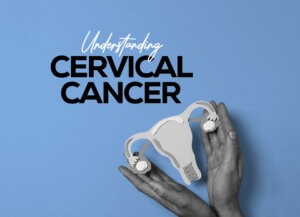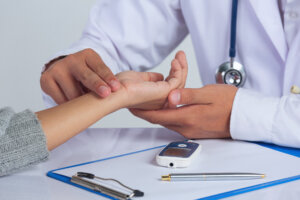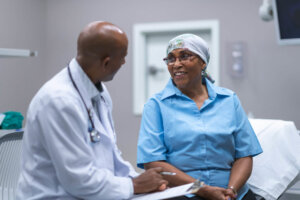Cancer is a group of diseases involving abnormal cell growth with the potential to invade or spread to other parts of the body…part 1, click to read more
RISK FACTORS OF CANCER
- Age
- Genetics/Family history
- Environment Lifestyles
- Lifestyles

SIGNS AND SYMPTOMS OF CANCER

Signs and symptoms caused by cancer will vary depending on what part of the body is affected.
Some general signs and symptoms associated with, but not specific to, cancer, include:
- Fatigue
- Lump or area of thickening that can be felt under the skin.
- Unintended weight loss or weight gain
- Skin discoloration
- Changes in bowel or bladder habits
- Persistent cough or trouble breathing
- Difficulty swallowing
- Hoarseness
- Persistent indigestion or discomfort after eating.
- Persistent, unexplained muscle or joint pain
- Persistent, unexplained fevers or night sweats
- Unexplained bleeding or bruising
STAGES OF CANCER

Different types of staging systems are used for different types of cancer. Below is an example of one common method of staging:
- stage 0: indicates that the cancer is where it started (in situ) and has not spread.
- stage I: the cancer is small and has not spread anywhere else.
- stage II: the cancer has grown but has not spread.
- stage III: the cancer is larger and may have spread to the surrounding tissues and/or the lymph nodes (part of the lymphatic system)
- stage IV: the cancer has spread from where it started to at least one other body organ; also known as “secondary” or “metastatic” cancer.

Cancer treatment options include:
SURGERY: The goal of surgery is to remove the cancer or as much of the cancer as possible.
CHEMOTHERAPY: Chemotherapy uses drugs to kill cancer cells.
RADIATION THERAPY: Radiation therapy uses high-powered energy beams, such as X-rays, to kill cancer cells. Radiation treatment can come from a machine outside your body (external beam radiation), or it can be placed inside your body (brachytherapy).
BONE MARROW TRANSPLANT: Bone marrow transplant is also known as a stem cell transplant. Your bone marrow is the material inside your bones that makes blood cells. A bone marrow transplant can use your own cells or cells from a donor.
A bone marrow transplant allows your doctor to use higher doses of chemotherapy to treat your cancer. It may also be used to replace diseased bone marrow.
IMMUNOTHERAPY: Immunotherapy, also known as biological therapy, uses your body’s immune system to fight cancer. Cancer can survive unchecked in your body because your immune system does not recognize it as an intruder. Immunotherapy can help your immune system “see” the cancer and attack it.
HORMONE THERAPY: Some types of cancer are fueled by your body’s hormones. Examples include breast cancer and prostate cancer. Removing those hormones from the body or blocking their effects may cause the cancer cells to stop growing.
TARGETED DRUG THERAPY: Targeted drug treatment focuses on specific abnormalities within cancer cells that allow them to survive.
Around one third of deaths from cancer are due to the 5 leading behavioral and dietary risks:

high body mass index, low fruit and vegetable intake, lack of physical activity, tobacco use, and alcohol use although there is no certain way to prevent cancer. But doctors have identified several ways of reducing your cancer risk, such as:
- Stop smoking. If you smoke, quit. If you don’t smoke, don’t start. Smoking is linked to several types of cancer — not just lung cancer. Stopping now will reduce your risk of cancer in the future.
- Avoid excessive sun exposure. Harmful ultraviolet (UV) rays from the sun can increase your risk of skin cancer. Limit your sun exposure by staying in the shade, wearing protective clothing, or applying sunscreen.
- Eat a healthy diet. Choose a diet rich in fruits and vegetables. Select whole grains and lean proteins.
- Exercise most days of the week. Regular exercise is linked to a lower risk of cancer. Aim for at least 30 minutes of exercise most days of the week. If you have not been exercising regularly, start out slowly and work your way up to 30 minutes or longer.
- Maintain a healthy weight. Being overweight or obese may increase your risk of cancer. Work to achieve and maintain a healthy weight through a combination of a healthy diet and regular exercise.
- If you choose to drink alcohol, limit yourself to one drink a day.
- Schedule cancer screening exams. Talk to your doctor about what types of cancer screening exams are best for you based on your risk factors.
- Ask your doctor about immunizations. Certain viruses increase your risk of cancer. Immunizations may help prevent those viruses, including hepatitis B, which increases the risk of liver cancer, and human papillomavirus (HPV), which increases the risk of cervical cancer and other cancers. Ask your doctor whether immunization against these viruses is appropriate for you.
This World Cancer Day, who are you and what will you do? We need your commitment to create a cancer-free world.



